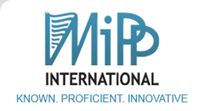Matveeva L.G., Chernova O.A. Competitive import substitution as the imperative of development of agrarian and industrial complex in the conditions of economic sanctions
Lyudmila Grigoryevna MatveevaDoctor of Economic Sciences, Professor, Department of Informational Economics, Southern Federal University
matveeva_lg@mail.ru
М. Gorky St., 88, 344007 Rostov-on-Don, Russian Federation
Olga Anatolyevna Chernova
Doctor of Economic Sciences, Professor, Department of Informational Economics, Southern Federal University
chernova.olga71@yandex.ru
М. Gorky St., 88, 344007 Rostov-on-Don, Russian Federation
Abstract.
In this article it is substantiated that implemented in Russia the policy of import substitution implies the need to develop the competitive capacity of domestic production. Taking into consideration the tasks of the provision of food security in the face of increasing external threats at the implementation of modernisation projects of import substitution in agriculture are needed. For the regions of Southern Russia the development of agriculture is of special importance because they form the economic profile of the industry of the agro-industrial specialization. With the agricultural sphere of the region the prospects of the increase of the food supply security of the national economy are linked. The purpose of this article is to review regional determinants (on the example of Rostov region), determining the prospects of implementation of projects of competitive import substitution in the agricultural sector. Methodological basis of the study is presented by the theory of competitive advantages of M. Porter and his model of the competitive rhombus. Respectively the regional potential for competitive import substitution in agriculture was estimated according to the following determinants: factor conditions, domestic demand, level of development of related and supporting industries, level of intra-industry competition. The limiting factors for the realization of competitive projects of import substitution in the Rostov region are low internal demand for domestic machinery, high wear of funds. Factors creating the growth are high scientific potential, the availability of the industry’s leaders able to initiate the implementation of modernization projects. The analysis made allowed to draw a conclusion about the necessity of implementing the following directions of agricultural development for the effective implementation of competitive projects of import substitution: the formation of institutional conditions for the development of integration interaction of agricultural enterprises to implement projects with complete production and technological chains; technological renewal of the capital assets; the use of cluster technologies for the implementation of projects of import substitution; increase of migration attractiveness of the region and others.
Key words: agriculture, policy of import substitution, competitive import substitution, regional factors, modernization.
Attachments: /Matveeva.pmd.pdf







